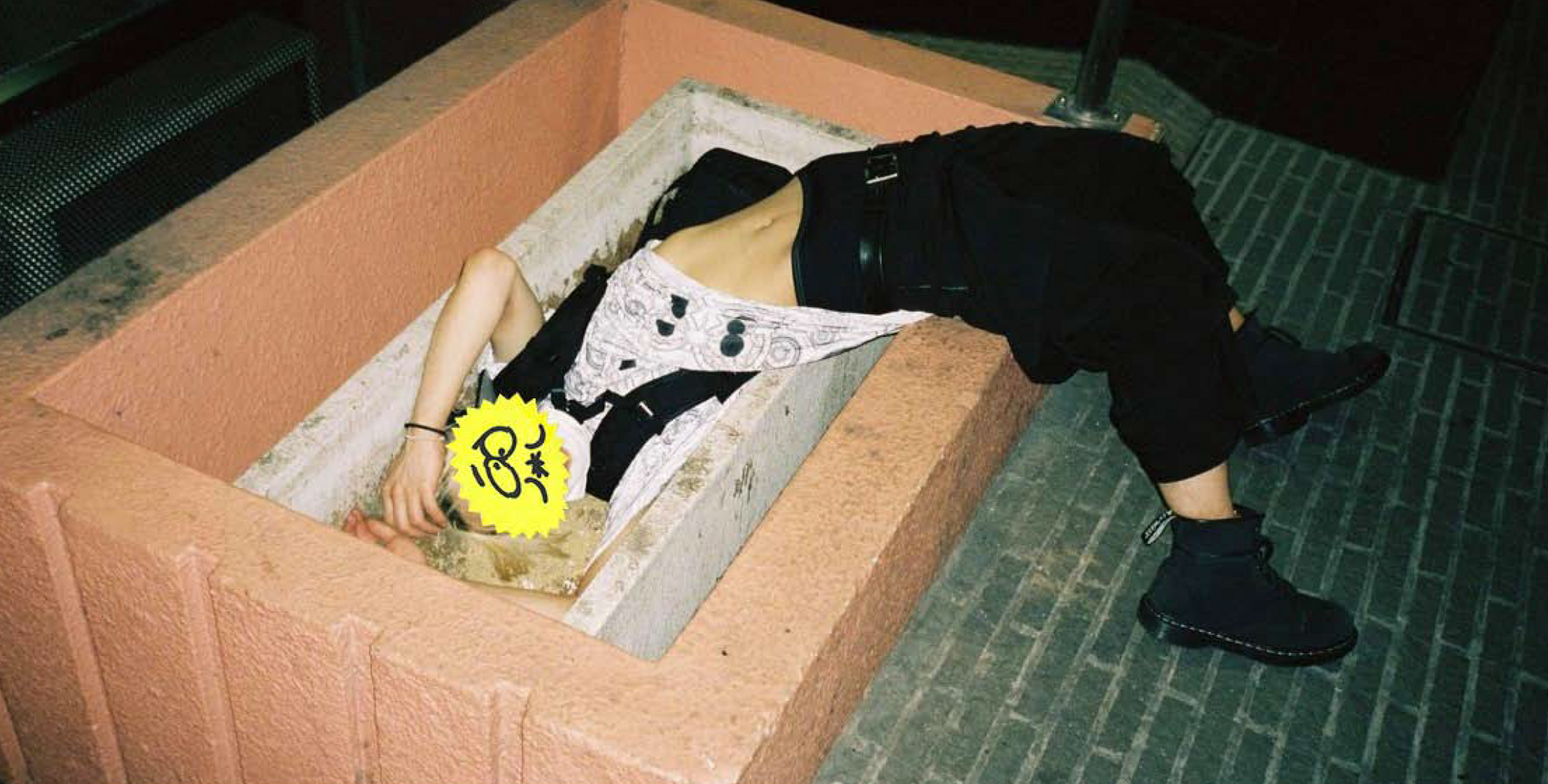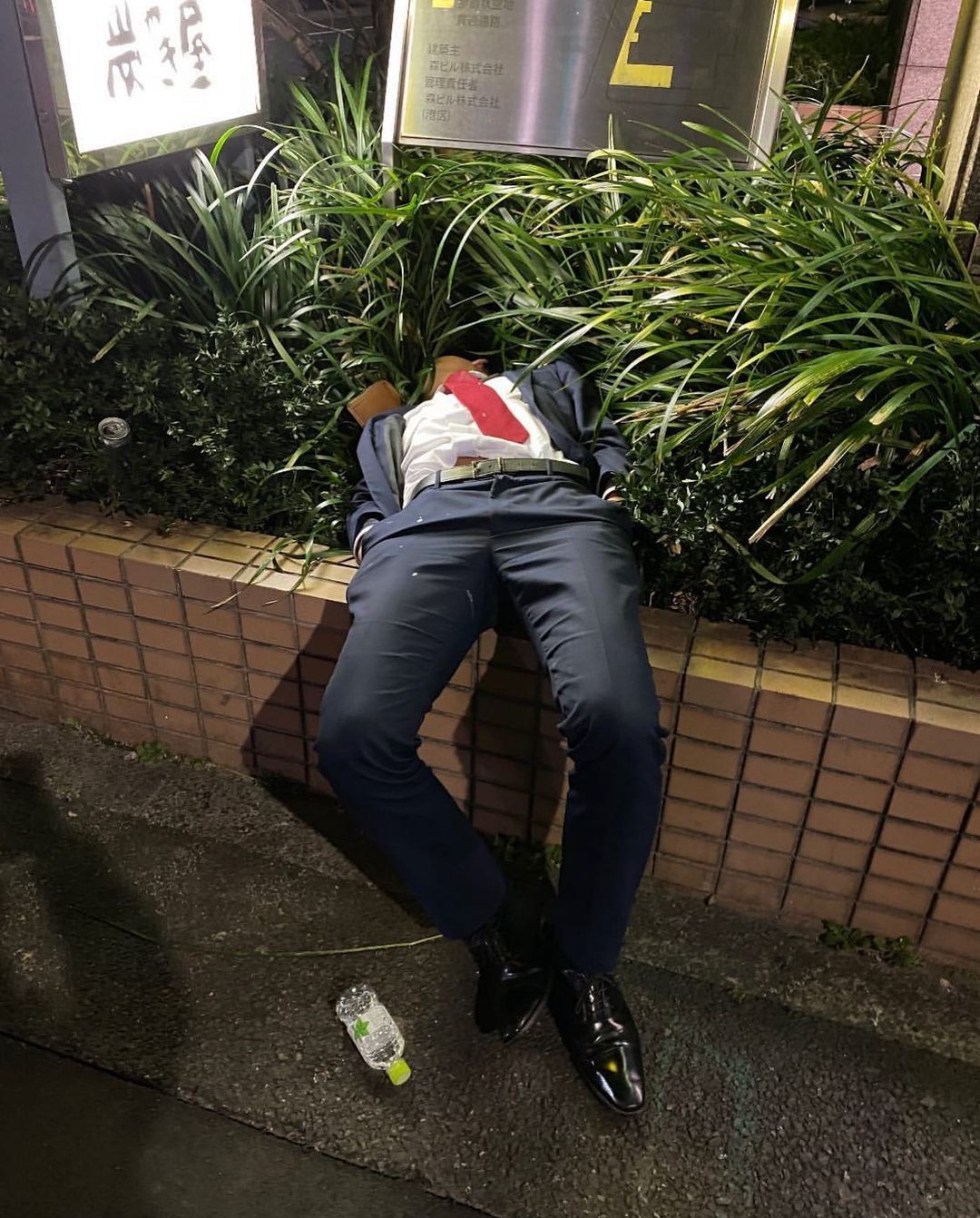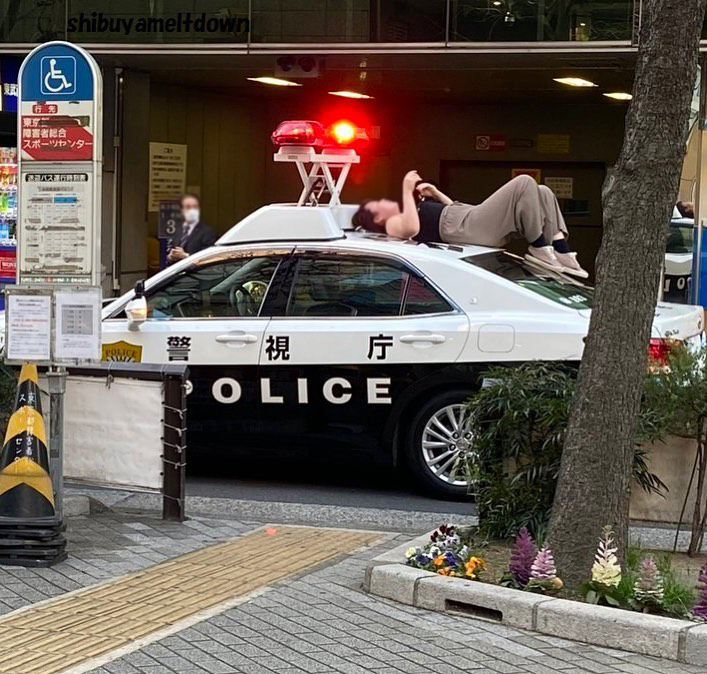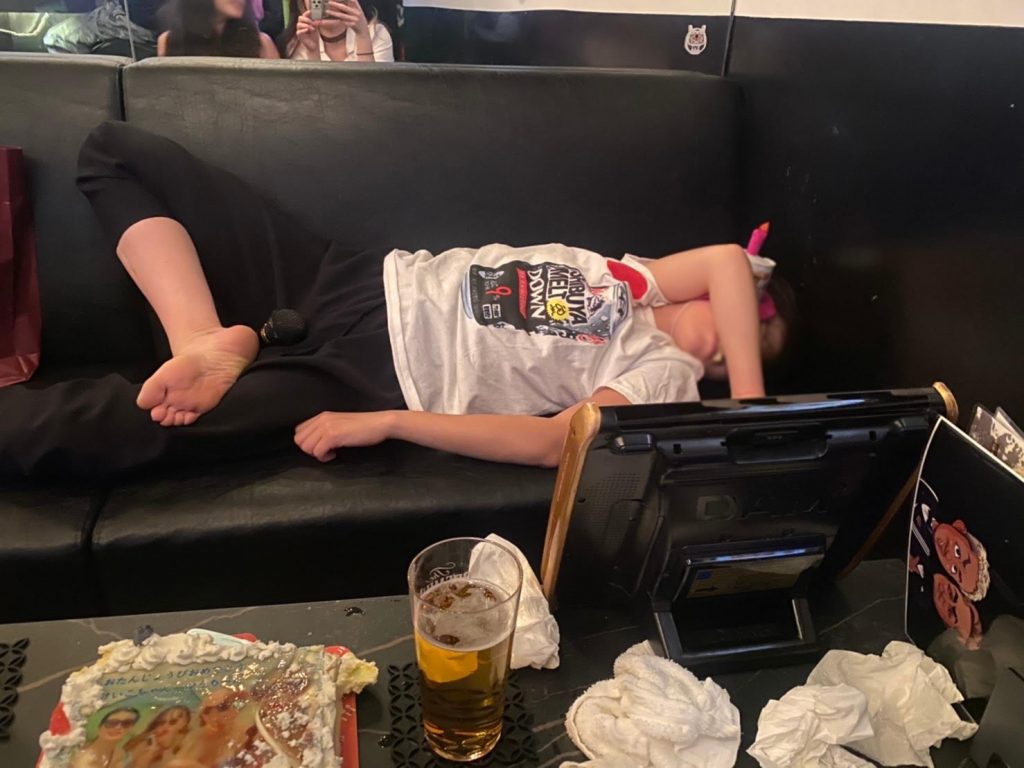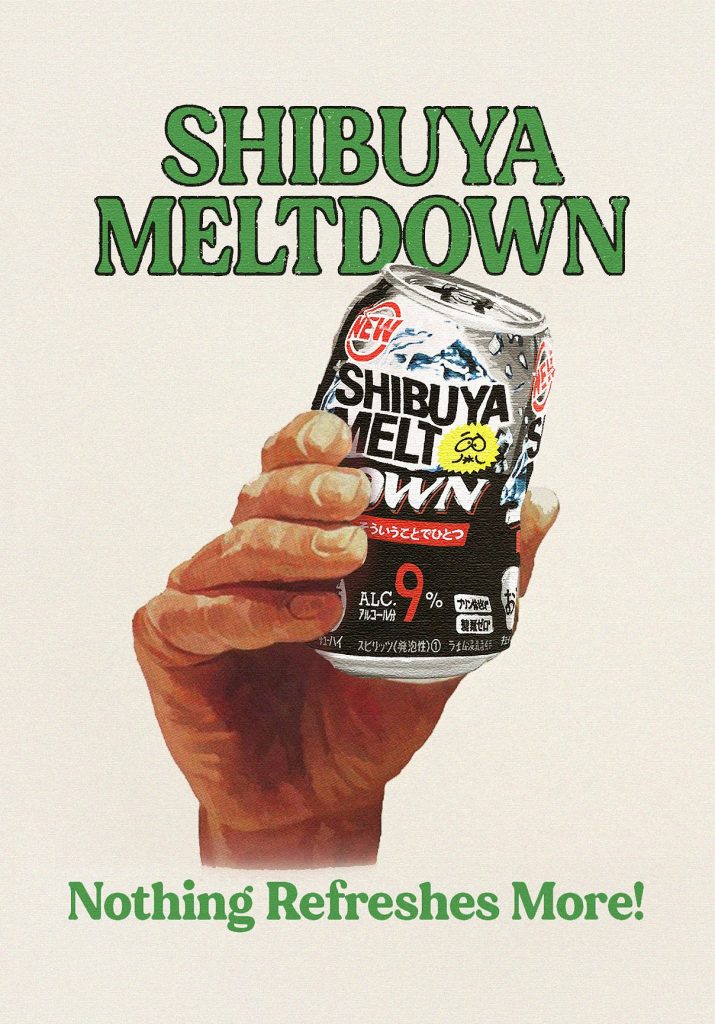In the past few years, Shibuya PARCO has been renovated, and the landscape on Spain-zaka has changed dramatically. In addition, the area surrounding Shibuya Station, including Shibuya Stream, Shibuya Scramble Square, and Miyashita Park, has been drastically redeveloped, and construction is expected to continue until 2027.Although the area was temporarily deserted due to COVID-19 it is now beginning to regain its former vigor. The Instagram account “Shibuya Meltdown™” observes the ever-shifting Shibuya district from a particular perspective. There, people of all ages and genders, drunk on the streets and trains, sleeping as if they were unconscious, are posted in an extraordinary form.
“Can you fight for 24 hours?” This was used in commercials during the bubble era as a catch phrase to symbolize the Japanese businessman and gained popularity.Even now, more than 30 years later, it is hard not to feel a sense of pathos at the current state of work-life balance and the need to be a company slave, but I can also see the positive side of Japan, where people do not interfere with each other and can maintain a safe personal space even on trains and streets.
10 years have passed since he started posting, and he now has more than 280,000 followers, and his merchandise, which resembles a certain drink that causes meltdowns, is also popular, attracting a different kind of fan base. Under the condition that he would not reveal his identity, we had a chance to talk to the man behind the mysterious Shibuya Meltdown™ about his activities.
−−Why did you start this account and project?
After traveling to Japan for many years, I realized that this particular thing only happened in Japan. It was interesting for many reasons both positive and negative. When I moved to Japan this was the perfect time to start documenting and social media was good platf_orm to display it. It was originally just for close friends to check out but soon after others became interested.
−−What kind of images did you have in Shibuya, Tokyo when you first posted? Please tell us your impressions when you first saw Shibuya’s meltdown people.
Honestly I was amazed by a few things. One that someone could go from being fine to on the floor in 5mins totally unexpectedly. Two that if they were passed out no one would bother them and their belongings would remain safe. In other countries you would be robbed or beaten up if you displayed yourself in public like this. So it really proved how safe Japan is.
−−I’m Japanese, so I feel embarrassed when I see Shibuya’s drunkenness posted on Instagram, or I feel that I have to be careful not to be like this, but from the perspective of foreigners What kind of impression do you have?
As I mentioned above It proves how safe it can be on the streets here. But there are downsides. It can become a mess with body fluids that can’t be held in. I also think that there are other reasons people get this way. Some people are overworked and miss their last train and have no way to get home. I think the pandemic has given these people an excuse to not be so pressured at work. The Japanese work culture can be cruel and full of bullies but that’s a whole different topic.
−−What are your followers’ opinions or comments?Is it different domestically and internationally?
I have not received too much negativity from it but I’m sure there are people who hate the concept of this account. I have received requests from lots of Japanese television shows to do interviews but I think that this would put it in the spotlight of the wrong people.
Foreigners think it’s funny and stage fake meltdowns and send in these kinda images. Lame!
−−What is the origin of the name of SHIBUYA MELTDOWN?
Shibuya was where I would visit and stay on my travels so I would see lots of things around this area. Anything that meltdown naturally becomes closer to the earth like someone passed out. So think that the name as something to do with “” but that is just a catchphrase from media of 2011, the word meltdown relates to anything like a candle melting down.
−−The scenery of Shibuya has changed drastically in the last few years, and above all, the chances of seeing people who are drunk due to the influence of corona have decreased dramatically. What would happen to this account if there were no drunk people in Shibuya?
Shibuya has changed for sure. But the construction continues…. For sure there are less submissions but surprisingly there are still people out at bars and clubs getting themselves into melting situations. I don’t really agree with going out at this point in time. I think staying at home for a few months is a small sacrifice to battle something that’s totally reshaping our world right now. The bottom line is Japan is an Island we should be able to beat this pandemic, we have a lot to learn from places like New Zealand and Australia in a situation like this. I honestly never expected this account to get this way and it’s social media so it can never last forever. I just hope it made people aware of this phenomenon.
−−Being able to get drunk in this way proves that Tokyo and Shibuya are peaceful cities. I think it’s nice to live in a city that is suitable for drunk people, or a city that allows them. What do you think about this?
As a community Japanese people are very respectful of each other and keep their opinions to themselves and these kind of things makes not just drinking and being able to walk home safely possible but it relaxes many rules that are implemented in other countries because there are many more stupid people with strong opinions.
“Shibuya Meltdown™ porfile
People sleeping in shibuya
“What goes up must Meltdown”
Instagram:@shibuyameltdown
Website:https://shibuyameltdown.com
Photography Shibuya Meltdown™

